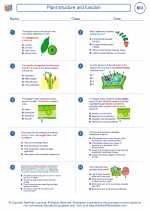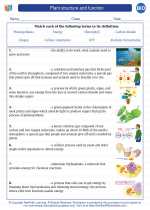Metabolism
Metabolism refers to the sum of all chemical reactions that occur within an organism to maintain life. These reactions can be categorized into two main types: catabolic and anabolic reactions.
Catabolic Reactions
Catabolic reactions involve the breakdown of complex molecules into simpler ones, releasing energy in the process. Examples of catabolic reactions include the breakdown of glucose during cellular respiration and the breakdown of fats and proteins for energy production.
Anabolic Reactions
Anabolic reactions involve the synthesis of complex molecules from simpler ones, requiring energy input. Examples of anabolic reactions include the synthesis of proteins, carbohydrates, and lipids.
Metabolic Pathways
Metabolic pathways are series of chemical reactions that occur in a specific sequence, with each step being catalyzed by a specific enzyme. These pathways regulate the flow of molecules through the cell, allowing for the production of necessary compounds and the release of energy.
Enzymes
Enzymes are biological catalysts that facilitate metabolic reactions by lowering the activation energy required for the reactions to occur. They are highly specific and can be regulated to control the rate of metabolic processes.
Study Guide
- Define metabolism and explain its significance in maintaining life.
- Differentiate between catabolic and anabolic reactions, providing examples of each.
- Discuss the concept of metabolic pathways and their role in cellular processes.
- Explain the function of enzymes in metabolic reactions and their regulation.
- Provide an overview of the major metabolic pathways in cells, such as glycolysis, the citric acid cycle, and oxidative phosphorylation.
◂Biology Worksheets and Study Guides High School. Plant structure and function

 Worksheet/Answer key
Worksheet/Answer key
 Worksheet/Answer key
Worksheet/Answer key
 Worksheet/Answer key
Worksheet/Answer key
 Vocabulary/Answer key
Vocabulary/Answer key
 Vocabulary/Answer key
Vocabulary/Answer key
